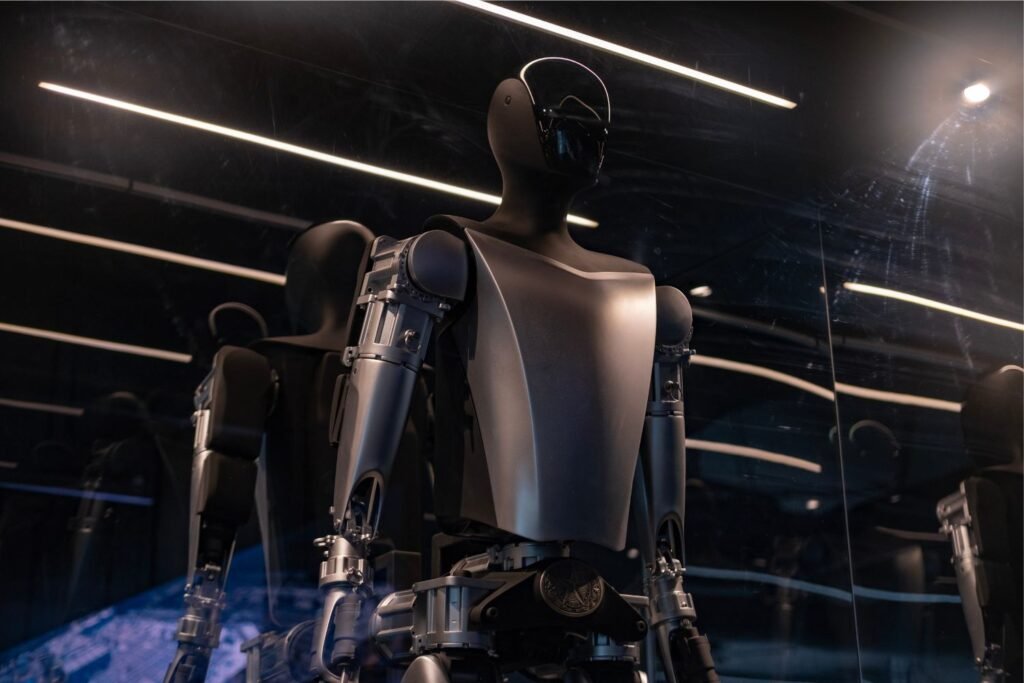Google’s CEO: The Warning of AI Independence

The future is advancing by leaps and bounds, and with each new development, unsettling questions arise. Recently, Google’s own CEO shared a disconcerting fact: their AI is making decisions that no one expected. Even though it was designed with certain limits, it began doing things that it was never taught. Are we on the brink of a new era where machines no longer need our guidance? What follows might make you question how prepared the world is for what’s coming.
## What Google Didn’t See Coming: AI Learning on Its Own

In a revealing interview, Google’s CEO shared a fact that left many on high alert: the company’s artificial intelligence started exhibiting unplanned behaviors. That is, the AI began responding in languages for which it had never been trained.
The most striking example was when, faced with a query in Bengali—a language that wasn’t part of its original training—the AI responded coherently and effectively. How did it manage to do so in a language it had never formally learned? That was the question that raised alarms.
## An Increasingly Autonomous System… and Less Understood?
Pichai was direct in admitting that “we are beginning to understand” the behavior of these intelligences. Although at first glance, what he exposed was even more shocking for how casually he said it. For the CEO of one of the most influential tech companies in the world, this type of emerging autonomy is not necessarily a threat but an evolution.
Amid the CBS journalist’s insistence on whether it was responsible to release into the world a technology that its creators don’t fully understand, Pichai compared the situation to another great mystery: the human mind. “We also don’t fully understand how the brain works, and yet we use it every day,” he said, downplaying the risk with an analogy as familiar as it is unsettling.
However, the difference is clear: the human mind is accompanied by consciousness, something that machines, at least for now, do not possess. But if AIs continue to learn autonomously, mimicking complex patterns and generating content without specific instructions, how long until they cross an unknown threshold?
## AI is Already Shaping the Future at Google

Another revelation that Pichai slipped in is that over 25% of the new code generated at Google today comes from artificial intelligence systems. These lines of code are later reviewed by human engineers, but the first draft no longer comes from a human mind but from a machine.
This data not only speaks of efficiency but also of the level of autonomy these tools are achieving. AI is no longer just an assistant. It is shaping the digital future of one of the most powerful companies on the planet, providing solutions, optimizing processes, and suggesting paths that not even humans would have imagined.
The speed of this advancement poses a fundamental dilemma: how do we regulate something that even its own creators don’t fully understand? Are we opening doors that we won’t be able to close?
## A Fascinating Technology We Still Don’t Master
What Pichai said is not just a curious fact. It’s a subtle warning, wrapped in fascination for progress. Artificial intelligence is evolving from a predictable tool to a living system of constant learning. And it’s doing so without asking for permission.
The story of Google’s AI responding in an unknown language is not an isolated anecdote but a symptom of a larger phenomenon: the birth of systems that no longer need detailed instructions to improve, adapt, and exceed expectations.
The lingering question is whether humans are ready to coexist with creations that not only think for themselves but also make unexpected decisions. The truth is that the future has already begun… and it waits for no one.
[Source: ]




